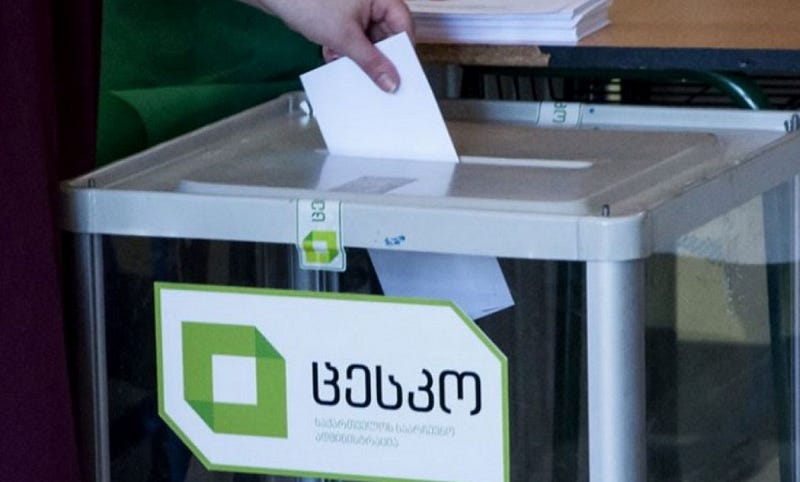Georgia to hold Presidential Elections runoff



Georgia held Presidential Elections on October 28th, resulted in runoff with two leading candidates: Salome Zurabishvili 38.64% (independent candidate endorsed by the ruling party Georgian Dream) and Grigol Vashadze 37.74% (supported by the opposition party United National Movement).
Central Election Commission (CEC) noted that vote was inclusive and representative, with 1,637,956 voters casting their ballots in 3,705 polling stations (46,7% of total registered voters, which is nearly the same participation rate as in the last 2013 Presidential election).
CEC registered 62 local and 58 international observer organisations, while 95 media outlets were granted accreditation.
The preliminary assessments of the observers describe the election day as professionally administered, orderly and transparent.
The preliminary conclusions of the International Election Observation Mission to Georgia highlighted that “the election was competitive and professionally administered — candidates were able to campaign freely and voters had a genuine choice”.
Kristian Vigenin, Special Coordinator and leader of the short-term OSCE observer mission said on 29 October 2018 following the election day: “In this election, Georgia showed the maturity of its democracy”. Andrej Hunko, Head of the delegation from the Parliamentary Assembly of the Council of Europe said that “yesterday voting was well organized, and electors made their choice without restrictions.”
The U.S. Embassy in Tbilisi/Georgia issued the statement echoing to the conclusions of the OSCE/ODIHR Election Observation Mission that the presidential elections were competitive and professionally administered, offering voters a genuine choice. Also, stressing that “it is important that the second round of presidential elections be conducted in line with international standards, allowing all Georgian citizens to express their wills freely at the ballot box. The U.S. Embassy supports the government of Georgia, civil society, and the Georgian people in advancing the country’s democratic and economic development, including through the conduct of free and fair elections.”
The International Society for Fair Elections and Democracy (ISFED), one of Georgia’s longest election observers, has concluded that this year’s process was mostly calm and orderly.
The Georgian Young Lawyer’s Association (GYLA) assessed that the election day was “peaceful” while the Transparency International Georgia stated that the election was held in a “largely peaceful environment, without serious violent incidents”.
“I would like to emphasize that the presidential election was held in a peaceful, free, and democratic environment, as confirmed by the reports of international observation missions. That has become a tradition under our government since 2012, and that is the Georgian people’s achievement… I would like to thank each voter, each citizen, for activity… I would like to thank the Election Administration, both local and international observation missions represented in significant numbers during the election,” noted Prime Minister of Georgia Mamuka Bakhtadze during the elections.
The second round will run no later than December 2nd and that will be the last time the president will be elected by direct ballot in Georgia. After the new president’s six-year term is completed, future presidents are to be chosen by a delegate system as part of constitutional changes, which marks the conclusion of the shift from a presidential to a parliamentary system, strengthening parliamentary oversight of government and increasing accountability of the governing institutions.
The new constitution, which will go into effect after the 2018 elections, states that the next President will be elected by the 300-member Electoral College for a term of five years. The college of electors will include MPs, local and regional government representatives.
The next presidential elections will be held in 2024, for a five-year term.



